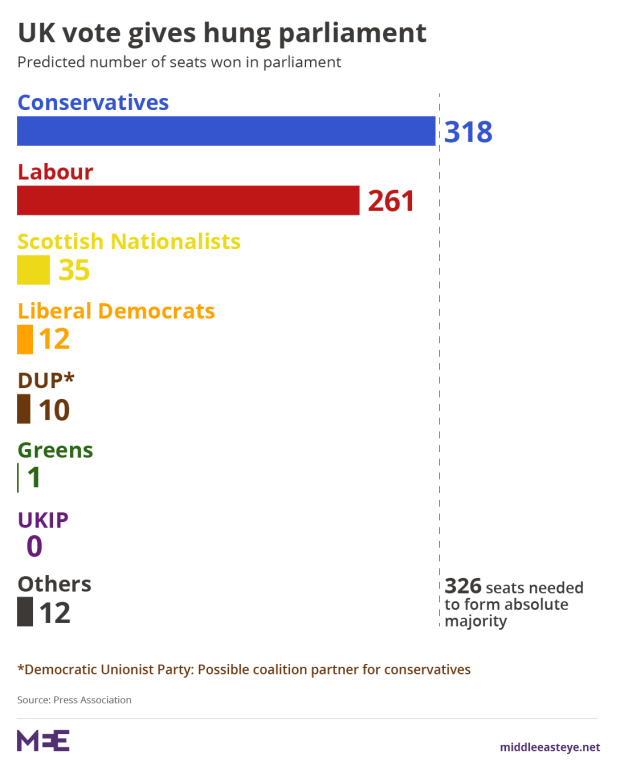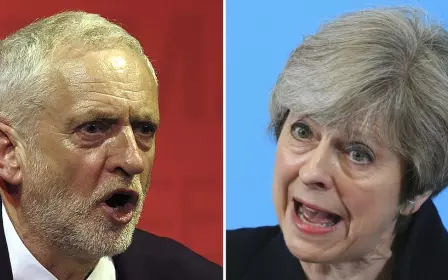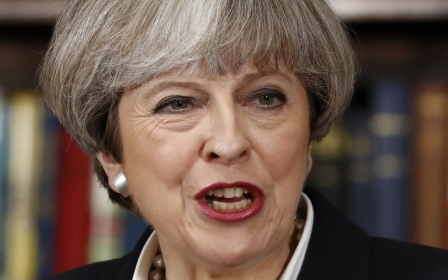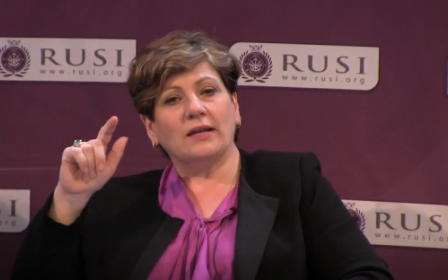Weak and unstable: Britain faces 'hung' parliament after Conservative poll disaster
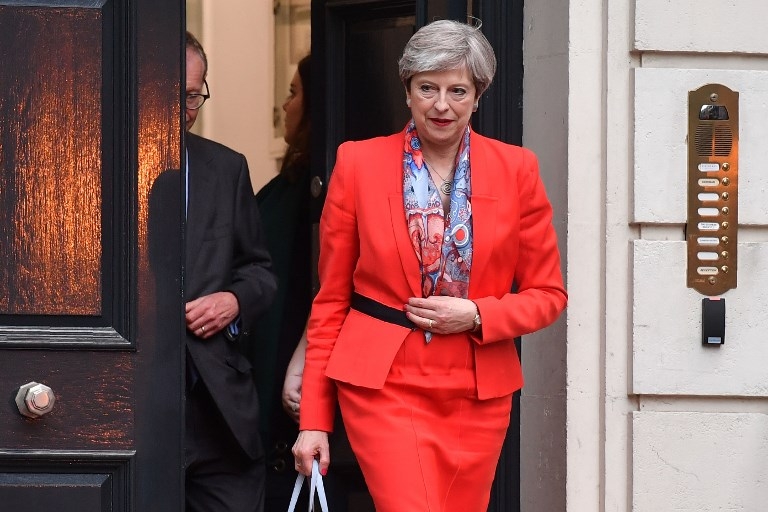
British Prime Minister Theresa May is facing calls to resign after British voters dealt her a punishing blow, denying her the stronger mandate she had sought to conduct Brexit talks and instead weakening her party's grip on power.
With no clear winner emerging from Thursday's parliamentary election, a wounded May signalled she would fight on, despite losing her majority in the House of Commons.
A prominent member of her own party and her Labour rival Jeremy Corbyn said she should step down.
With 649 out of 650 seats declared, the Conservatives had won 318 seats and were therefore no longer able to reach the 326 mark they would need to command a parliamentary majority. Labour had won 261 seats.
With talks of unprecedented complexity on Britain's departure from the European Union due to start in just 10 days' time, it was unclear who would form the next government and what the fundamental direction of Brexit would be.
"At this time, more than anything else this country needs a period of stability," a grim-faced May said after winning her own parliamentary seat of Maidenhead, near London.
"If... the Conservative Party has won the most seats and probably the most votes then it will be incumbent on us to ensure that we have that period of stability and that is exactly what we will do."
But Jeremy Corbyn, leader of the Labour Party, called on May to resign after winning his own seat in north London by a significant margin.
"The prime minister called the election because she wanted a mandate. Well, the mandate she’s got is lost Conservative seats, lost votes, lost support and lost confidence. I would have thought that is enough for her to go, actually," he said.
Meanwhile Conservative member of parliament Anna Soubry was the first in the party to disavow May in public, calling on the prime minister to "consider her position".
"I'm afraid we ran a pretty dreadful campaign," Soubry said.
It is now unclear who might end up leading the next government and steering Britain into divorce talks with the European Union. But with the smaller parties more closely aligned with Labour than with the Conservatives, the prospect of Corbyn becoming prime minister no longer seems fanciful.
May had unexpectedly called the snap election seven weeks ago, even though no vote was due until 2020. At that point, polls predicted she would massively increase the slim majority she had inherited from predecessor David Cameron.
Instead, she risks an ignominious exit after just 11 months in Downing Street, which would be the shortest tenure of any prime minister for almost a century.
Analysts blamed the decline on May's botched announcement of a reform in funding for elderly care, a strong grassroots campaign by Corbyn, and the terror attacks, which have led to scrutiny of her time as interior minister before becoming prime minister.
"It seems clear her gamble has not paid off," said Paula Surridge, politics lecturer at Bristol University.
Peter Oborne, a frequent Middle East Eye contributor, told the outlet that the results show that "several things can be said", including the resignation of May.
"First, it will be very difficult for May to survive. Second, there will be another general election in six to 12 months and third, it puts Brexit in play," he said.
"[Brexit] is no longer certain," he added.
Brexit minister David Davis said results so far from Thursday's election pointed to a transformation taking place in Britain, but it was too soon to call the result.
"This is a much more disruptive election - all sorts of changes are going on geographically in Scotland, in the north of England," Davis told ITV. "It's rather early to make rash predictions."
Attacks played a role
The campaign was interrupted twice by attacks.
A suicide bomber blew himself up outside a pop concert in Manchester on 22 May, killing 22 people.
Less than two weeks later, three assailants wearing fake suicide vests mowed down pedestrians and went on a stabbing attack around London Bridge, killing eight people before being shot dead by police.
Just days before the election was called, a lone assailant also ran over pedestrians and stabbed a police officer to death outside British parliament on 22 March, killing five people.
The attacks have led to scrutiny over May's time as interior minister from 2010 to 2016, particularly since it emerged that some of the attackers had been known to police and security services.
Labour seized on radical cuts in police numbers implemented as part of a Conservative austerity programme, although May insisted that she had protected funding for counter-terrorism.
Labour surges
Labour leader Jeremy Corbyn, a veteran socialist who had initially been written off as a no-hoper, was widely deemed to have run a strong, policy-rich campaign that enthused many followers.
As the results stand, Labour would only be able to form a minority government with smaller parties which, like Labour, strongly oppose most of May's policies on domestic issues such as public spending cuts.
If Labour does take power with the backing of the Scottish nationalists and the Liberal Democrats, both parties adamantly opposed to Brexit, Britain's future will be very different to the course the Conservatives were planning and could even raise the possibility of a second referendum.
"If the poll is anything like accurate, this is completely catastrophic for the Conservatives and for Theresa May," George Osborne, who was the Conservative finance minister from 2010 to 2016 when he was sacked by May, said on ITV.
"It's difficult to see, if these numbers were right, how they (the Conservatives) would put together the coalition to remain in office," said Osborne.
"But equally it's quite difficult looking at those numbers to see how Labour could put together a coalition, so it's on a real knife edge."
In Scotland, the pro-independence SNP were in retreat despite winning most seats. Having won all but three of Scotland's 59 seats in the British parliament in 2015, their share of the vote fell sharply and they lost seats to the Conservatives, Labour and the Liberal Democrats.
The campaign had played out differently in Scotland than elsewhere, the main faultline being the SNP's drive for a second referendum on independence from Britain, having lost a previous plebiscite in 2014.
SNP leader and First Minister Nicola Sturgeon said it had been a disappointing night for her party, while Scottish Conservative leader Ruth Davidson said Sturgeon should take the prospect of a new independence referendum off the table.
Middle East Eye propose une couverture et une analyse indépendantes et incomparables du Moyen-Orient, de l’Afrique du Nord et d’autres régions du monde. Pour en savoir plus sur la reprise de ce contenu et les frais qui s’appliquent, veuillez remplir ce formulaire [en anglais]. Pour en savoir plus sur MEE, cliquez ici [en anglais].


